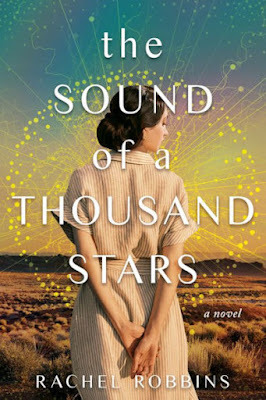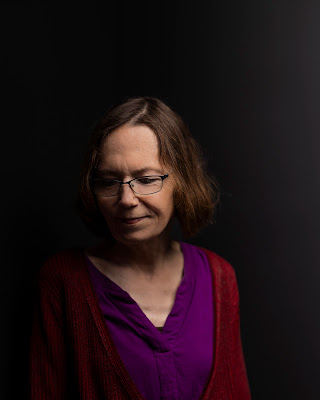Galina Vromen began writing fiction after more than twenty years as an international journalist in Israel, England, the Netherlands, France, and Mexico. After a career with Reuters News Agency, she moved to the nonprofit sector as a director at the Harold Grinspoon Foundation.

Vromen launched and directed two reading readiness programs in Israel, one in Hebrew (Sifriyat Pijama) and one in Arabic (Maktabat al-Fanoos). During her tenure, the two programs gifted twenty million books to young children and their families and were named US Library of Congress honorees for best practices in promoting literacy.
Vromen’s stories have been performed on NPR’s Selected Shorts program and appeared in magazines such as
American Way, the
Adirondack Review,
Tikkun, and
Reform Judaism. She has an MA in literature from Bar-Ilan University in Israel and a BA in media and anthropology from Hampshire College in Massachusetts.
The author and her husband divide their time between Israel and Massachusetts.
Vromen's new novel is
Hill of Secrets.
My Q&A with the author:
How much work does your title do to take readers into the story?
Hill of Secrets is very much about secrets — personal and national ones. And it takes place in Los Alamos, New Mexico, a mesa (flat-topped hill) which was where the world's first atomic bombs were built, and arguably the most secret place in the United States in the 20th century. So, yes, I think the title takes the reader right into the heart of the story. In the book, all the main characters have their own personal secrets, except for one — a teenager — who very much wants to know everyone else's secrets, or at least thinks she does.
My original title was Nuclear Families, since the book is about family life for those living at Los Alamos during the war, but the publisher didn't like it. There was a lot of back and forth and it was my husband who came up with a title we could all agree on.
What's in a name?
The last name of the German Jewish refugee family in the book is actually the family name of some of my own relatives. My main consideration in the first names of the characters was to make sure the main characters have names that start with a different letter from each other.
How surprised would your teenage reader self be by your novel?
My teenage self would not have been surprised by the novel. She probably would have related very well to the teenage character, Gertie, and she would have probably paid particular attention to the steamy sections, as teenagers are wont to do. Like Gertie, my teenage self tended to get along better with adults than with kids my own age. She would have been pleased that the novel actually got written because, even then, she wanted to be writer.
Do you find it harder to write beginnings or endings? Which do you change more?
I find beginnings much harder to write. I kept changing my first chapter because I have two main characters — Christine, a 30-something woman who had to stop her career to join her husband at Los Alamos, and Gertie, a teenage Jewish German refugee — and each chapter starts with the point of view of a different character. Initially, Gertie had the first chapter, but I was afraid the book would be classified as a young adult book if it started with a teenage point of view, so I switched to Christine. I must have written the opening scene at least 20 times.
I did change the ending somewhat, to make it more open ended. Some readers find this unsatisfying; they want more closure, but I am very comfortable with leaving  the reader wondering what might or might not happen next and whether secrets are a good thing or not. To my mind, it makes the book more thought provoking and it raises questions that have no easy answer.
the reader wondering what might or might not happen next and whether secrets are a good thing or not. To my mind, it makes the book more thought provoking and it raises questions that have no easy answer.
Do you see much of yourself in your characters? Do they have any connection to your personality, or are they a world apart?
I certainly drew on my teenage self in depicting Gertie although I was probably not as curious as I make her out to be. In general, though, I prefer to write about characters who are not related to me. Just like most actors do not want to be type cast — I don't like to effectively type cast myself in my writing. So the further away I get from myself, the happier I am as a writer, because that is when I really let my imagination soar, when I try to see the world through the eyes of someone who is different from me, which is interesting and also challenging.
What non-literary inspirations have influenced your writing?
Politics definitely influenced me. As far back as I can remember, I have worried about nuclear war. I grew up during the Cold War of the 1960s and the concept of mutually assured destruction, which dominated US-Soviet relations at the time, seemed to me even then both a dangerous and stupid way to conduct ourselves. As a child, I remember school drills where we would have to line up with our backs to our lockers in the hallway — in case of a nuclear attack! Today, it is ludicrous to think that anyone could have possibly believed this would keep us safe. I suspect it was intended to inculcate in us a fear of nuclear war and of the Soviet enemy, while simultaneously encouraging a totally unfounded belief that we could protect ourselves from an attack by standing rigidly against our lockers in the hallway of our school. The origins of that arms race started to some extent with Los Alamos. In recent years, I have been very worried about the potential for nuclear war in the Middle East and the horrific damage it could inflict.
Visit
Galina Vromen's website.
The Page 69 Test: Hill of Secrets.
My Book, The Movie: Hill of Secrets.
--Marshal Zeringue
 Marilyn Simon Rothstein is the author of four novels: Who Loves You Best, Crazy To Leave You, Husbands And Other Sharp Objects, and Lift And Separate. She grew up in New York City, earned a degree in journalism from NYU, began her writing career at Seventeen magazine, married a man she met in an elevator and owned an award-winning advertising agency for more than twenty-five years.
Marilyn Simon Rothstein is the author of four novels: Who Loves You Best, Crazy To Leave You, Husbands And Other Sharp Objects, and Lift And Separate. She grew up in New York City, earned a degree in journalism from NYU, began her writing career at Seventeen magazine, married a man she met in an elevator and owned an award-winning advertising agency for more than twenty-five years.




















